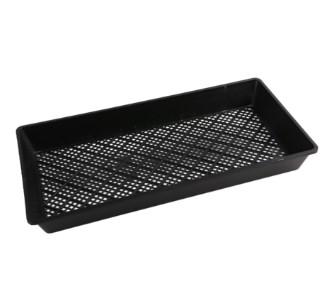Plastic seed tray manufacturers are tasked with the challenge of creating products that can withstand and perform optimally in a variety of climate conditions. The performance of these trays is not only a testament to the quality of the materials used but also to the ingenuity of the design that allows for adaptability in different environments.
In arid climates, where water conservation is paramount, plastic seed tray manufacturers must ensure that their trays provide adequate moisture retention without succumbing to the intense heat and dryness. The use of materials with high water absorption and slow-release properties is crucial. Additionally, the design of the trays must facilitate efficient watering systems that minimize evaporation and runoff.
Conversely, in humid and tropical climates, the challenge for plastic seed tray manufacturers is to create trays that prevent waterlogging and promote good drainage. The materials used must be resistant to fungal growth and other microorganisms that thrive in damp conditions. The trays should also be designed with raised edges or built-in drainage systems to prevent water from pooling around the seedlings.
In colder climates, plastic seed tray manufacturers must consider the impact of freezing temperatures on their products. The trays must be made from materials that can withstand cold without becoming brittle or breaking. Furthermore, the design should allow for adequate insulation to protect the seeds from extreme cold, ensuring that the germination process is not adversely affected.
The adaptability of plastic seed trays to different climates is not only about the physical resilience of the materials but also about the flexibility of the design. Plastic seed tray manufacturers must consider the needs of growers in various regions and create trays that can be easily modified or adjusted to suit specific climate conditions. This could include the use of interchangeable components, such as different types of lids or covers, or the ability to stack trays in different configurations to optimize space and light exposure.
Moreover, the performance of plastic seed tray manufacturers' products in different climates is also influenced by the quality of the manufacturing process. Precision in the molding and assembly of the trays ensures that there are no weak points or imperfections that could compromise the tray's integrity under varying weather conditions.
In conclusion, the performance of plastic seed trays in different climate conditions is a multifaceted issue that requires a comprehensive approach from plastic seed tray manufacturers. By focusing on material selection, design flexibility, and manufacturing precision, plastic seed tray manufacturers can create products that not only meet the needs of growers in diverse climates but also contribute to the overall sustainability and efficiency of seed cultivation practices worldwide.

